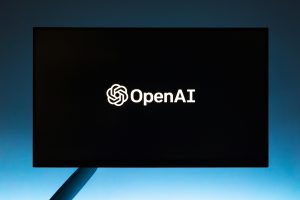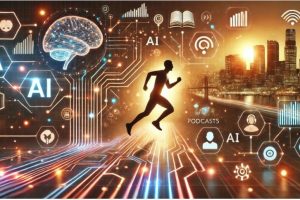AI in Business: Transforming Industries in 2025
Artificial Intelligence (AI) is revolutionizing the world of business at an unprecedented pace. By 2025, AI is no longer a futuristic concept—it is a core component of decision-making, customer interaction, and operational efficiency across industries. Businesses of all sizes are leveraging AI to stay competitive, reduce costs, improve customer experiences, and uncover new revenue streams. This article explores the current role of AI in business, the technologies driving its growth, practical applications across various sectors, and the future potential of AI in the corporate world.
The Rise of AI in the Business Landscape
AI in business has evolved from simple automation tools to sophisticated systems capable of learning, reasoning, and adapting. Machine learning, natural language processing, computer vision, and predictive analytics are now part of everyday operations in finance, healthcare, retail, marketing, and logistics. With cloud computing and massive data availability, companies can now deploy AI tools at scale, making them accessible even to small and medium-sized enterprises.
According to market research, global spending on AI technologies is expected to exceed $300 billion in 2025. The primary drivers of this growth include the increasing need for efficiency, demand for personalized customer experiences, and the explosion of data generated by digital business processes.
Core Technologies Powering AI in Business
Several key technologies form the foundation of AI in business. Machine Learning (ML) enables systems to learn from data and improve over time without explicit programming. Businesses use ML for tasks like fraud detection, recommendation engines, and inventory forecasting.
Natural Language Processing (NLP) allows machines to understand and respond to human language. It is the backbone of AI-powered chatbots, sentiment analysis tools, and language translation services. NLP helps companies automate customer service and extract insights from unstructured text data.
Computer Vision enables AI systems to interpret and analyze visual inputs. In retail, it’s used for store surveillance and visual merchandising; in manufacturing, for quality control and defect detection.
Robotic Process Automation (RPA) combines AI with rule-based automation to handle repetitive tasks such as data entry, invoicing, and report generation. RPA increases speed and accuracy while freeing up human workers for more strategic tasks.
AI Applications Across Industries
Finance
The financial sector was among the earliest adopters of AI. Today, banks and fintech companies use AI for risk assessment, fraud prevention, algorithmic trading, and customer service. AI algorithms analyze customer behavior to detect suspicious activity in real time. Robo-advisors provide personalized investment advice based on user goals and market trends. Additionally, AI simplifies loan approval processes by analyzing applicant data faster and more accurately than traditional methods.
Retail and E-Commerce
AI has transformed how retailers operate and engage with customers. E-commerce platforms use AI to recommend products, optimize pricing strategies, and manage inventory. Visual search tools allow users to upload images and find similar products instantly. In physical stores, AI-powered cameras and sensors analyze shopper behavior to improve store layout and staffing. Chatbots and virtual assistants provide instant support, helping to drive sales and enhance customer satisfaction.
Healthcare
In healthcare, AI is being used to enhance diagnostics, predict disease outbreaks, and personalize treatment plans. Machine learning algorithms analyze medical images to detect conditions such as cancer and heart disease earlier than human doctors. Predictive analytics tools assess patient data to foresee complications and suggest preventive measures. Hospitals use AI to manage patient flow, reduce wait times, and improve overall efficiency. AI-driven drug discovery is accelerating the development of new treatments by identifying promising compounds faster.
Manufacturing
Manufacturing industries rely on AI for predictive maintenance, process optimization, and supply chain management. AI sensors monitor equipment health and predict failures before they occur, minimizing downtime and maintenance costs. Smart factories use AI to adjust production schedules in real time based on demand and resource availability. In quality control, computer vision systems inspect products for defects with unmatched precision.
Marketing and Customer Service
AI is redefining how companies interact with customers. AI-powered analytics platforms analyze consumer behavior and preferences, enabling highly targeted marketing campaigns. Natural language generation tools automatically create personalized email content, advertisements, and product descriptions. In customer service, AI chatbots handle routine queries 24/7, improving response times and reducing the burden on human agents. Sentiment analysis tools monitor brand reputation across social media platforms, allowing companies to react quickly to negative feedback.
Logistics and Supply Chain
AI enhances logistics by improving route optimization, demand forecasting, and warehouse automation. AI-driven systems analyze traffic, weather, and delivery schedules to plan the most efficient routes. In warehouses, robotic systems pick and pack items faster and more accurately than human workers. AI helps supply chain managers anticipate disruptions and make data-driven decisions to maintain smooth operations.
Benefits of AI Adoption in Business
The benefits of incorporating AI into business operations are extensive. One of the most significant advantages is efficiency. AI automates time-consuming tasks, allowing employees to focus on strategic initiatives. This leads to cost reductions and faster turnaround times.
AI also enables better decision-making by analyzing vast amounts of data to uncover patterns and trends that humans might miss. These insights can lead to new business opportunities, improved customer targeting, and more effective strategies.
Personalization is another major benefit. AI can tailor experiences to individual customers, increasing engagement and satisfaction. Whether it’s personalized marketing, product recommendations, or customer support, AI helps build stronger relationships between businesses and their audiences.
Furthermore, AI enhances accuracy and consistency. In fields like finance and healthcare, where errors can be costly, AI systems deliver reliable results with minimal risk.
Challenges and Ethical Considerations
Despite its advantages, AI in business is not without challenges. One major concern is data privacy. AI systems require vast amounts of data, raising questions about how that data is collected, stored, and used. Businesses must adhere to strict regulations like the GDPR and ensure transparency in their data practices.
Bias in AI algorithms is another issue. If the training data is biased, the AI system may produce unfair or discriminatory outcomes. Companies must prioritize fairness and accountability in their AI development processes.
The impact on employment is also a hot topic. While AI creates new job opportunities in areas like data science and AI engineering, it also threatens to displace workers in routine or repetitive roles. Businesses need to invest in reskilling and upskilling their workforce to ensure a smooth transition.
Security is another concern. AI systems can be vulnerable to cyberattacks, data breaches, or adversarial manipulation. Ensuring robust cybersecurity measures is critical to protecting business operations.

The Future of AI in Business
The future of AI in business is incredibly promising. As AI technologies continue to evolve, their applications will become even more integrated and intelligent. Explainable AI (XAI) will address the “black box” problem, helping stakeholders understand how decisions are made. This will be crucial in regulated industries like healthcare and finance.
AI will also play a key role in sustainability. Companies will use AI to track carbon footprints, optimize resource usage, and develop eco-friendly products. Smart energy management systems powered by AI will reduce waste and improve environmental compliance.
Another exciting development is the rise of autonomous business operations. AI will be able to make real-time decisions across the organization—from pricing strategies to customer engagement—without human intervention. This level of autonomy could revolutionize business models and accelerate innovation.
Collaboration between humans and AI will continue to deepen. Instead of replacing workers, AI will augment their capabilities, enabling faster learning, better productivity, and more creative problem-solving. Human-AI partnerships will become the norm in the modern workplace.
Conclusion: AI in Business
AI is reshaping the business world, offering tools and insights that were unimaginable a few years ago. In 2025, organizations that embrace AI are not just improving their operations—they are redefining how they compete, create, and connect. From enhancing customer experiences to streamlining supply chains and enabling data-driven decision-making, the impact of AI in business is profound and far-reaching. As technology continues to evolve, companies must remain agile, ethical, and forward-thinking to fully unlock the potential of AI and lead in an increasingly intelligent and automated future.

















Add Comment